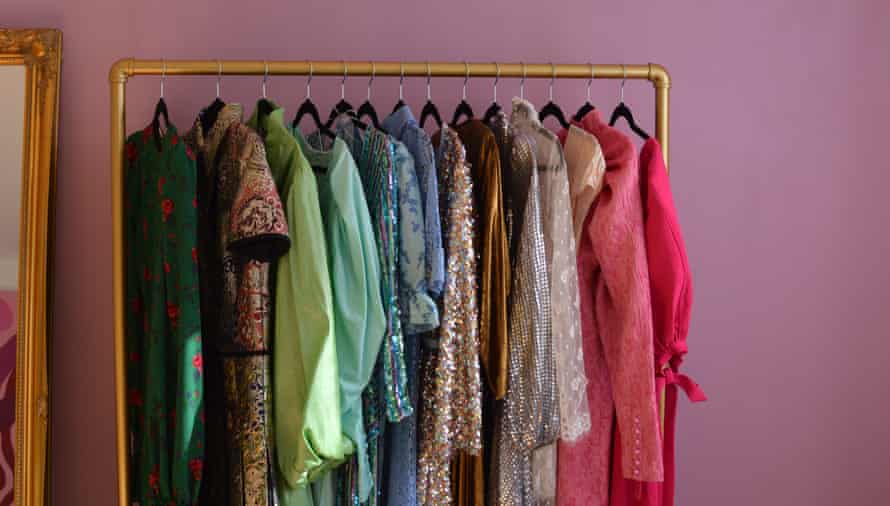When Carrie Symonds married Boris Johnson over the bank holiday weekend, it wasn’t in a dress handed down by a relative, or a custom-made designer frock destined to take up space in her wardrobe for years to come. It was in a dress she had rented for a few days from a website called My Wardrobe HQ.
You might not expect a person who spends tens of thousands redecorating a flat that she will only temporarily live in to be much of an economiser, but it turns out that Symonds – now Johnson – is a frequent renter. “Carrie has always rented from us,” says Sacha Newall, the founder of My Wardrobe HQ, who had no idea that this particular dress was destined for Westminster Cathedral. “As a regular customer, nothing flagged as being unusual about the order.”
The embroidered tulle gown, the work of the Greek luxury designer Christos Costarellos, reportedly set Symonds back £45, whereas it would have cost £2,870 to buy – about £1,500 more than the average wedding dress in the UK in 2019.
Renting clothes – everything from dresses and shoes to bags and hairbands – has become increasingly popular over the past few years. With about £140m worth of used clothing being sent to landfill in the UK every year, according to the charity Wrap, it is seen as a relatively guilt-free way to partake in fashion.
Even the pandemic didn’t make a dent. “I’m very surprised that we did have rentals,” says Eshita Kabra-Davies, the founder of By Rotation, which is part social network and part rental platform and has more than 60,000 users. “It would be for things like celebrating birthdays with partners or housemates – that dopamine dressing thing.”

After about a month of lockdown easing, the market is even more buoyant. By Rotation’s revenues are already up about eightfold on the start of this year and it is a similar picture at My Wardrobe HQ. “It does feel like the moment’s now,” says Newall.
With many people looking to re-enter beer gardens with a bang, there is much speculation that we are in for a summer of statement dressing. If 2020 was a year to forget, Newall believes that 2021 will be a year to remember: “Fashion rental has dovetailed really nicely into that. As part of that memory, you want to wear something incredible – but how many times do you want to wear it?”
It hasn’t hurt the rental market that, during lockdown, people were finding time to sort through their wardrobes and get to grips with what they did and didn’t need. Also, with charity shops closed for much of the year, they were forced to explore other outlets for their unworn garments. “All these spring-cleaning Marie Kondo conversations that people were having were very beneficial for a peer-to-peer marketplace like ours,” says Kabra-Davies.
But what of the practicalities? While different companies operate differently – private lenders and renters with By Rotation clean items themselves before posting them to one another, while My Wardrobe HQ takes care of cleaning and couriering – it is not always as faff-free as some might want.
Caryn Franklin, fashion commentator and activist, doesn’t believe this will hold people back, though. “Humans are amazing adapters. I was someone who, really early on, questioned whether selling clothes online at all would work … I’ve already been proved completely wrong,” she says. “We already have a culture of sending stuff back – people order far more than they’re going to keep so they can do a trying-on session.”
So, is renting the future for fashion? “Absolutely,” says Newall, quoting research for the US firm Rent the Runway that 20% of the retail market will be rental by 2025.
Franklin believes it is one of many creative solutions being offered to fashion’s sustainability problem – and won’t be right for everyone. “We need a variety of solutions,” she says. “I think that we still will choose to make relationships with items of clothing that are ours and ours for ever … we’ll also have a movable feast within our wardrobe, which we will switch.” There are, after all, “lots of garments that we’d all like to have a go on – so why not rent?”
from Lifestyle | The Guardian https://ift.tt/34DePjJ
via IFTTT

comment 0 Comment
more_vert